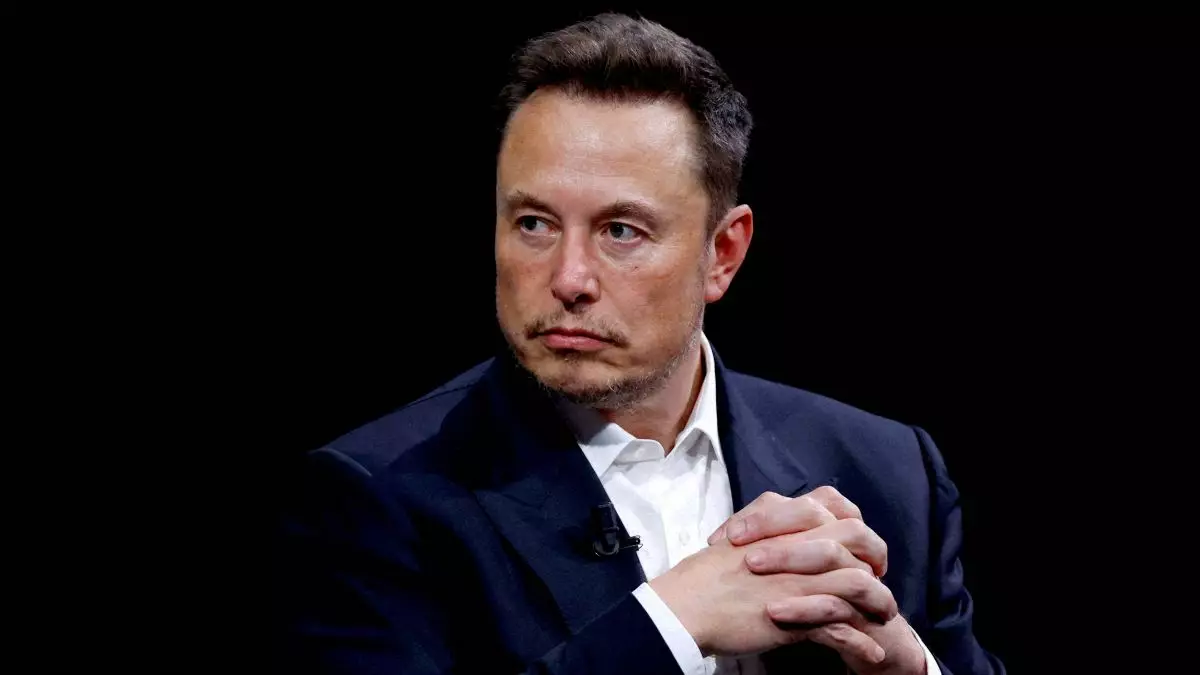The ongoing legal tussle between Elon Musk and the U.S. Securities and Exchange Commission (SEC) has entered a new and potentially explosive chapter. As one of the most enigmatic figures in modern business, Musk’s influence stretches across multiple industries from electric vehicles to space exploration. However, this influence is now overshadowed by his legal obligations, particularly regarding his acquisition of Twitter, which raised alarm bells among regulators. The SEC’s recent announcement of intended sanctions against Musk for skipping a court-ordered testimony raises pivotal questions about accountability in corporate governance and the conduct of influential business figures.
The backdrop to this conflict includes Musk’s $44 billion acquisition of Twitter and subsequent scrutiny of his actions leading up to this significant investment. Investigators are probing whether Musk adhered to the legal requirements for disclosing his stock purchases, especially questions surrounding the potential late disclosure of his ownership stake in Twitter that could have misled investors. The timing and motivations behind these disclosures work in tandem with the SEC’s mission to maintain market integrity, thus framing the regulator’s firm stance in this unfolding drama.
The SEC’s recent motion to sanction Musk centers on his failure to appear for a testimony scheduled for September 10, where he was expected to address questions relating to his acquisition of Twitter. The SEC claims that Musk’s last-minute cancellation, communicated just three hours prior to the scheduled time, reflects a lack of seriousness in complying with the law. According to the SEC, Musk knew well in advance of his commitments to SpaceX and the Polaris Dawn mission but chose to prioritize these obligations instead.
The emerging narrative presents Musk’s actions as deliberate “gamesmanship,” potentially undermining the regulatory process designed to foster transparency. SEC attorney Robin Andrews articulated this sentiment, suggesting that such delay tactics are unacceptable and need to be met with appropriate legal consequences. The undermining of regulatory processes poses significant implications not just for Musk but also for how other influential figures regard compliance with laws that govern market behavior.
On the contrary, Musk’s legal representatives have been quick to defend their client’s actions. Musk’s attorney, Alex Spiro, condemned the notion of sanctions as “drastic” and unnecessary, highlighting the importance of Musk’s physical presence during the SpaceX launch, which were critical for ensuring safety and success. Spiro also characterized the absence as an “emergency” situation, suggesting that Musk’s testimony has been rescheduled for a later date, minimizing the perceived severity of the situation from Musk’s perspective.
This clash underscores a broader issue: the tension between the spheres of business operations and regulatory compliance. Musk’s significant commitments to his various companies may invite scrutiny over the priorities of high-profile executives, challenging conventional expectations of corporate accountability. The juxtaposition of duty to one’s company versus obligation to regulatory bodies invites continued debate within legal circles as the SEC seeks to uphold its mandate against potential breaches in securities law.
Musk’s perceived lack of adherence to SEC regulations is compounded by his history of confrontation with regulatory authorities. Speculation mounts over whether his past conflicts with the SEC are feeding into his current predicament or if they signify a broader reluctance among influential executives to submit to regulatory scrutiny. Musk himself has accused the SEC of harassment, further complicating the dynamics of this regulatory relationship.
Additionally, with the SEC probing Musk’s actions from April 2022 regarding stock purchases, the repercussions of these allegations can influence investor confidence and market dynamics. Investors who expected Musk to provide timely disclosures may feel apprehensive about the implications of delayed communications on their financial interests.
As Elon Musk prepares for his rescheduled testimony on October 3, the stakes remain high—not just for him but for the regulatory environment as a whole. The entangled web of corporate responsibility, public interest, and individual accountability continues to be scrutinized. The SEC’s actions are emblematic of a regulatory agency unwilling to yield to the pressures exerted by high-profile individuals, reaffirming its commitment to maintaining a fair market.
Ultimately, this episode serves as a striking illustration of the complexities that high-profile figures face when navigating personal ambition alongside regulatory frameworks. As we observe these developments, the intersection of innovation, power, and governance will undoubtedly be a focal point for both legal experts and business executives alike.


Leave a Reply